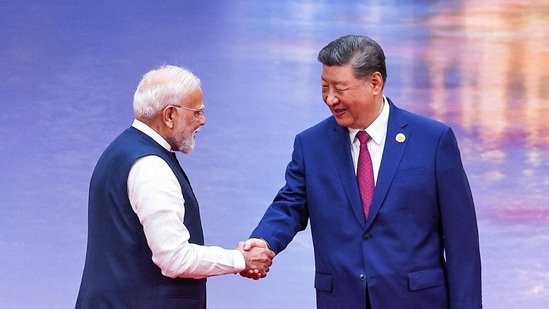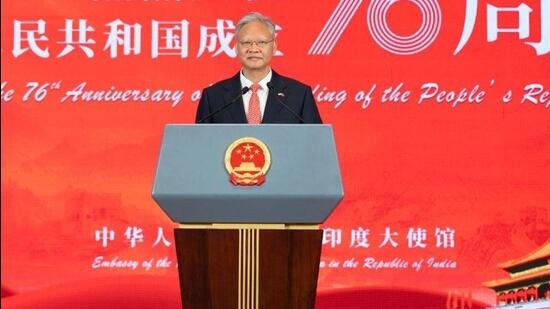For a movie about a particularly dark chapter of China’s history, 731 has been doing exceptional business.
The film, released on Thursday, focuses on Japan’s Unit 731, which conducted biological warfare in northeastern China during the second world war, using disease prevention research as cover to kill civilians.
It has topped the Chinese box office, taking more than 1.1 billion yuan (US$154.6 million) in revenue by Sunday, according to Lighthouse Professional Edition, a Chinese box office website.
Do you have questions about the biggest topics and trends from around the world? Get the answers with SCMP Knowledge, our new platform of curated content with explainers, FAQs, analyses and infographics brought to you by our award-winning team.
The film’s release is the latest in a series of events to mark the 80th anniversary of Japan’s defeat in the war and comes as each country’s perceptions of the other has declined – a situation some say will be exacerbated by the movie.
The film follows the story of a group of people imprisoned who try to escape from the facility.
731‘s premiere coincided with the anniversary of the Mukden Incident on September 18, 1931 – the beginning of Japan’s invasion of China.
The film is being released overseas as Evil Unbound, with screenings scheduled last week in Australia and the United States. It is scheduled to screen in South Korea in November, with plans to be released also in Britain, Germany, Russia and Singapore.

Film-goers in Harbin watch 731, which is being released abroad under the title Evil Unbound. Photo: Xinhua alt=Film-goers in Harbin watch 731, which is being released abroad under the title Evil Unbound. Photo: Xinhua>
Featuring several seasoned actors, including Jiang Wu, Li Naiwen and Sun Qian, the film had more than 100,000 screenings on the day of its premiere, accounting for over 99.7 per cent of all screenings in China.
Yao Xuan, a postgraduate student in Shanghai, was among the first group of viewers for a screening that began at 9.18am on Thursday, a showtime she said she picked for its commemorative meaning.
Yao, 29, said she had long been interested in the historical period covered by the film, noting she had previously watched the 1988 film Man Behind the Sun on the same topic.
“I think this [latest] film is relatively restrained,” she said. “It added some sentimental touches so younger people could accept it more easily, without being too gory.”
Yao added that she believed 731 would resonate with viewers abroad. “These are real facts and history is clear. The purpose is the same everywhere: don’t let history repeat itself.”
Another viewer, surnamed Hu, attended a screening on Thursday with several colleagues during their lunch break. She said she went to see such films mainly to preserve the past.
“It’s not about focusing on hatred,” said Hu, who is in her 40s. “Instead, it’s about remembering the lesson that weakness invites aggression – more of a self-reflection, not about promoting hostility between nations.”
On Chinese social media platforms, 731 attracted mixed reviews. Some praised it for documenting history, while others were not impressed by the director’s storytelling style.
The film’s release comes as a growing number of voices in China argue that the country’s pivotal role in the war has been under-recognised. Many believe the wartime suffering inflicted in Asia remains far less known worldwide.

A photo released by Chinese researchers in 2002 shows Japanese troops from Unit 731 conducting a frostbite experiment on a live Chinese person on a stretcher in Harbin in 1941. Photo: Reuters alt=A photo released by Chinese researchers in 2002 shows Japanese troops from Unit 731 conducting a frostbite experiment on a live Chinese person on a stretcher in Harbin in 1941. Photo: Reuters>
China in recent weeks has released films depicting the country’s 14-year war of resistance against Japan. One film, Dead to Rights, about the Nanjing massacre of 1937, topped the Chinese summer box office, earning more than 3 billion yuan.
Benoit Hardy-Chartrand, an international affairs specialist at Temple University Japan in Tokyo, said the war films were unlikely to affect official policies between the two countries yet still risked deepening negative public perceptions in both.
“At the political level, the release of these films will itself have a relatively limited impact, but it contributes to a widespread perception in Japan that there is rising anti-Japan sentiment in China,” he said.
Hardy-Chartrand added that the release of the films had been abundantly covered in the Japanese press, as have other touchy subjects between the countries, such as the murder last year of a young Japanese boy in Shenzhen and a ban on Japan’s seafood imports following the release of treated waste water in Fukushima in 2023.
“Many Japanese politicians view these films as a continuation of Chinese efforts to put Japan on the defensive, sharpening their wariness,” he said. “However, it’s unlikely to change the general stance of both governments” towards the bilateral relationship.
“What is concerning is that these films are likely to worsen already negative mutual perceptions in both countries. Japanese and Chinese views of their neighbour have deteriorated sharply in recent years, particularly in China, and rising nationalist views may increase pressure on both governments.”
Last week, Kyodo News reported the Japanese embassy in Beijing had emailed Japanese nationals in China, warning them to be “particularly vigilant” amid rising anti-Japanese sentiment.
It also reported that the Shenzhen Japanese School would suspend classes on Thursday, while the Shanghai Japanese School would switch to online classes and that the Japanese School of Beijing would strengthen security measures.
Asked about 731‘s release, Chinese foreign ministry spokesperson Lin Jian said on Thursday that film and television productions related to the topic served as “a reminder for the world to learn from history and safeguard peace”.
“China is an open, inclusive and safe country,” Lin said. “We welcome people from all countries, including Japan, to travel, study, do business and live in China, and will continue to treat them all equally and protect the safety of foreigners in China.”
This article originally appeared in the South China Morning Post (SCMP), the most authoritative voice reporting on China and Asia for more than a century. For more SCMP stories, please explore the SCMP app or visit the SCMP’s Facebook and Twitter pages. Copyright © 2025 South China Morning Post Publishers Ltd. All rights reserved.
Copyright (c) 2025. South China Morning Post Publishers Ltd. All rights reserved.





